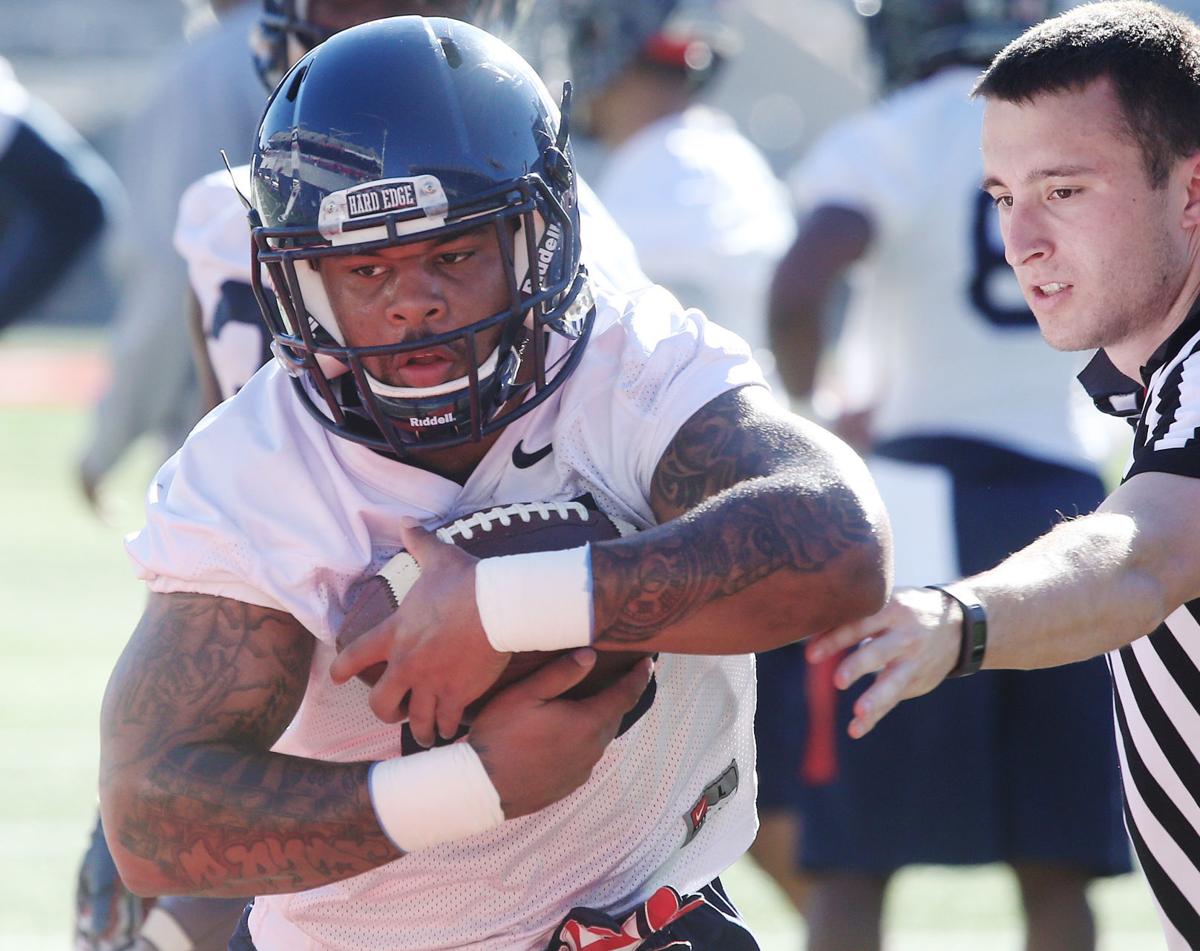The 9th Circuit Court of Appeals ruled in favor of the University of Arizona on Tuesday in its legal battle with a former student, with judges saying the school cannot be held responsible for off-campus assaults committed by Orlando Bradford while he was a UA football player.
Bradford was arrested in September 2016 after the plaintiff — at that time a fellow UA student and his girlfriend — told police he held her against her will in his off-campus apartment, assaulting her repeatedly over two days. He was eventually sentenced to five years in prison.
The woman sued the university, contending it violated her rights under Title IX, a federal law that says students have the right to an education free from sexual discrimination, including harassment, sexual abuse and dating violence.
A divided three-judge panel of the 9th Circuit rejected her argument that UA officials could have prevented the assaults because they knew about previous reports Bradford had abused other women on campus. The judges said that while the UA exercised control over Bradford, that did not extend under Title IX to off-campus actions.
“While (the victim’s) anger with how the university handled the reports of Bradford’s abuse of other students is understandable, her argument stretches the text of Title IX,” Circuit Judge Danielle Forrest wrote. "Not everything that a person subject to a school’s disciplinary control does can be attributed to the school’s operations. This is particularly true of student conduct."
"That a student’s off-campus housing is paid for with scholarship funds awarded by his school does not make his residence part of the school’s 'operations,'" Forrest continued. The plaintiff "was not assaulted on school property or during a school-related activity, and she did not go to Bradford's off-campus apartment for a school-related purpose. Nor did the University have regulatory control over Bradford’s off-campus apartment."
But Judge William Fletcher strongly disagreed, arguing that the university controlled the “context” of where the off-campus assaults took place because coaches controlled where football players were allowed to live and Bradford's athletic scholarship paid his living expenses.
"At the time of Bradford’s assaults on (the plaintiff), university officials, including Title IX administrators, had knowledge of repeated prior violent assaults by Bradford on two other female undergraduates during his freshman year. Despite their knowledge, those officials did not take steps to ensure that Bradford would not be a danger" to other students, Fletcher wrote.
"Undisputed evidence in the record shows that if those officials had informed Bradford’s coaches of his assaults on the other students, Bradford would have been immediately thrown off the football team, would have lost his athletic scholarship, and would have been expelled from the University by the end of his freshman year, months before his assaults" on the plaintiff, the dissenting judge wrote, describing the final assaults as "extremely violent."
Tuesday's ruling upheld a 2020 decision by U.S. District Court Judge G. Murray Snow in favor of the UA.
The plaintiff's attorney, Isabel Humphrey, told the Arizona Daily Star on Wednesday she is considering seeking a review by the full 9th Circuit Court of 29 judges.
UA officials declined to comment on the court's decision.
A second student also sued the UA under Title IX over Bradford. She came forward the day after his arrest in 2016, saying Bradford had been abusing her for several months. The Star does not typically name victims of domestic or dating violence.
In June 2020, the UA settled the lawsuit involving the second woman, paying $1.275 million.
Bradford was convicted in 2017 of two counts of domestic violence-related aggravated assault. He was sentenced to five years in prison and was released in December 2021.
In May 2020, the Trump administration handed down nearly 2,000 pages of federal guidelines and regulations regarding sexual misconduct and gender discrimination, which included several major changes. While not directly relevant to Title IX legal standards, the new guidelines said schools were no longer required under Title IX to investigate incidents that take place off campus.





